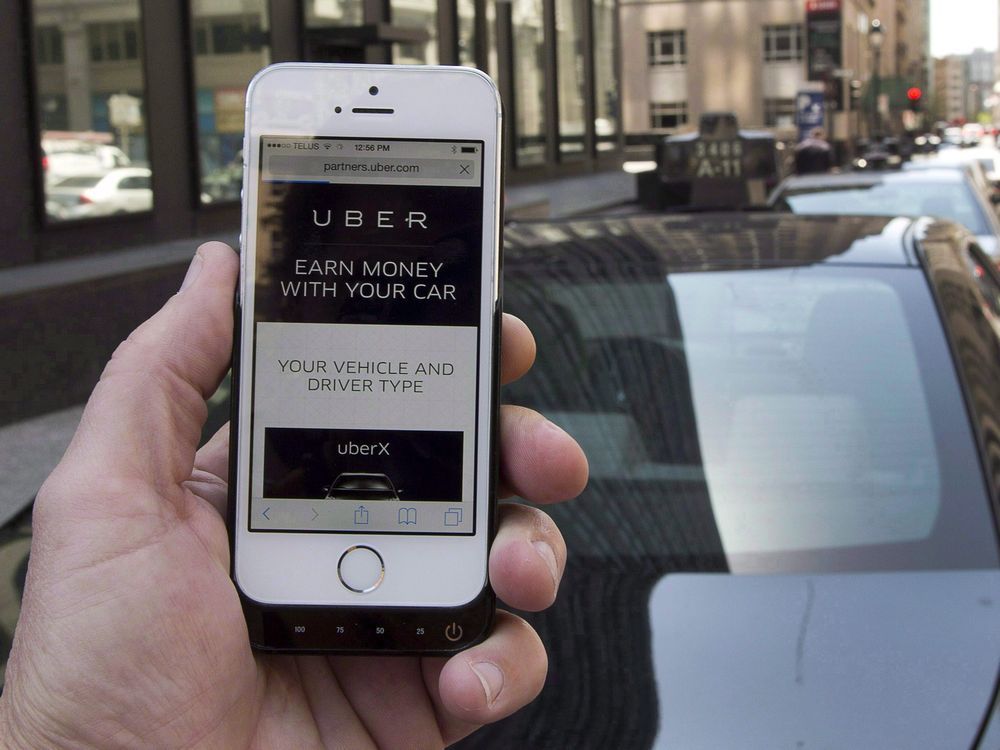Bring on Uber: Company applies to operate in Vancouver

Credit to Author: Joanne Lee-Young| Date: Thu, 29 Aug 2019 00:30:05 +0000
Uber announced plans Wednesday to begin service in Metro Vancouver, a move that prompted taxi associations that have previously sparred on a range of issues to meet and plan a united response against regulations they say unfairly favour ride-hailing companies.
B.C.’s Passenger Transportation Board said earlier this week that ride-hailing companies such as Uber and Lyft will be allowed to operate in larger operating zones than taxis, and with unlimited fleet sizes and the ability to raise rates during busier times.
The decision has some taxi drivers now seeking to recall two NDP MLAs in Surrey and Delta who they say courted their votes, but are now reneging on promises to create a level-playing field for taxis as the ride-hailing industry arrives in the province.
A day ahead of Uber’s official statement saying it will apply to the Passenger Transportation Board for approval to operate in Metro Vancouver when the application period opens on Sept. 3, members of the B.C. Taxi Association heard from a group of taxi drivers.
Gurdip Sahota, general manager of North Vancouver-based Sunshine Cabs, said he was at a taxi association meeting in Surrey on Tuesday where drivers said they have contacted Elections B.C. and are seeking to begin recall proceedings against NDP MLA and Minister of Citizens’ Services Jinny Sims in Surrey-Panorama, and NDP MLA Ravi Kahlon in Delta North.
“In the run-up to the (last provincial) election, the Liberals, previously, and the NDP, (while) trying to woo the drivers and their votes, said if there is ride-hailing in B.C., there would be some (new) regulations for taxis,” said Sahota.
Specifically, he said, “everyone is pissed off (now) there is an unlimited cap (on the number of cars that can be run by) ride-hailing companies. This will mean so much congestion on roads. We can’t compete if there are thousands of (ride-hailing) private vehicles.”
Catherine Read, chair of the Passenger Transportation Board, has said that fleet size for ride-hailing companies might be “re-addressed … as data becomes available.”
She said the independent tribunal decided to allow unlimited fleet sizes and “surge pricing” (charging higher rates during prime periods) because they are key to the models of ride-hailing companies.
However, the board said ride-hailing companies in B.C. will not be able to offer discounts or coupon savings that charge below the taxi flag rate of $3.25 to $3.95 in Metro Vancouver, as is permitted in other jurisdictions.
Mohan Kang, president of the B.C. Taxi Association, said he was aware of talk by some drivers to collect signatures in support of a recall of the two MLAs, but that “the association has nothing to do with that.”
On Wednesday afternoon, directors from the B.C. Taxi Association and the Vancouver Taxi Association met “to first discuss amongst ourselves some common options we may have together,” said Kang, declining to be more specific.
Earlier in the day, Uber said it will apply to operate in what will be known as Region 1, or the Lower Mainland/Whistler area, which covers Metro Vancouver, the Fraser Valley, Squamish and Lillooet. The specific communities in which Uber will offer its services will be finalized closer to its yet-to-be-decided launch date, based on how many drivers are recruited, and where.
B.C. Liberal MLA for Richmond-Queensborough Jas Johal called for the elimination of municipal boundaries for taxis, which require them to pick-up and drop-off passengers in restricted zones while ride-hailing companies will be allowed to operate in much wider areas.
The two taxi associations have been divided on this topic. Drivers with B.C. Taxi Association-affiliated companies, which mainly operate in suburban areas, get caught with “deadheading” when they drop off a passenger in Vancouver, having to double-back to Surrey or North Vancouver without a fare because they cannot pick up a passenger in that zone.
However, for Vancouver drivers, removing such restrictions could devalue their taxi licences, which hold their worth based on their scarcity in a certain area. This would potentially hurt companies and drivers that may have borrowed money to purchase or lease part-shares in vehicle licences.
Uber’s Head of Western Canada Michael van Hemmen.
Uber’s announcement on Wednesday followed a similar announcement from Lyft earlier this month.
“We are very excited for the opportunity to provide ride-sharing services in Metro Vancouver,” said Michael van Hemmen, head of Uber’s Western Canada division.
“For years, British Columbians have been clear that they want access to the same, affordable, reliable service they’ve used all over the world. We’re optimistic that Uber will be here for the busy holiday season.”
It’s expected the applications will take about six to eight weeks to process and would allow Uber to begin operating in late 2019.
The Uber app is displayed on an iPhone as taxi drivers wait for passengers at Vancouver International Airport.